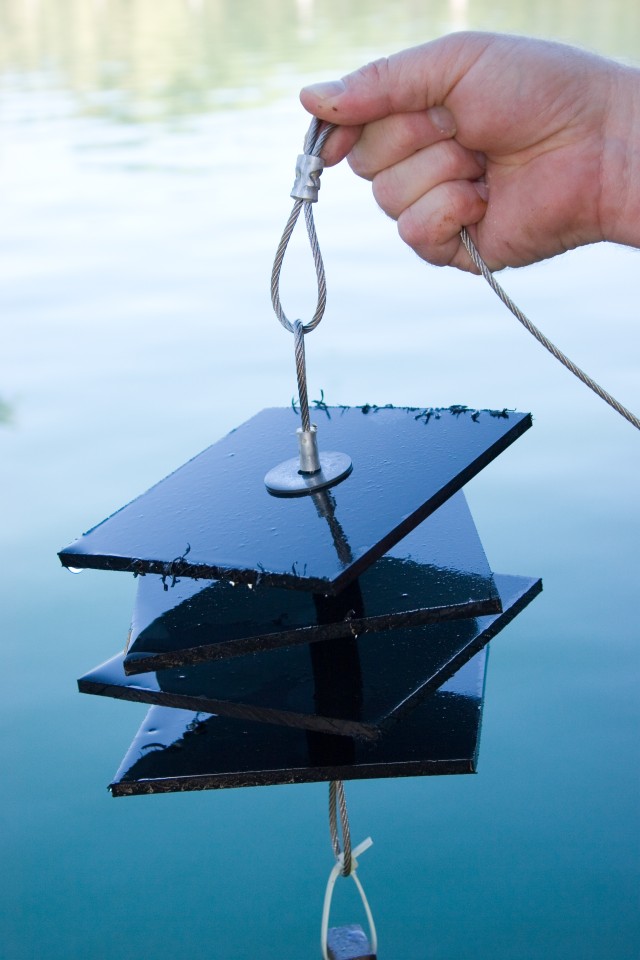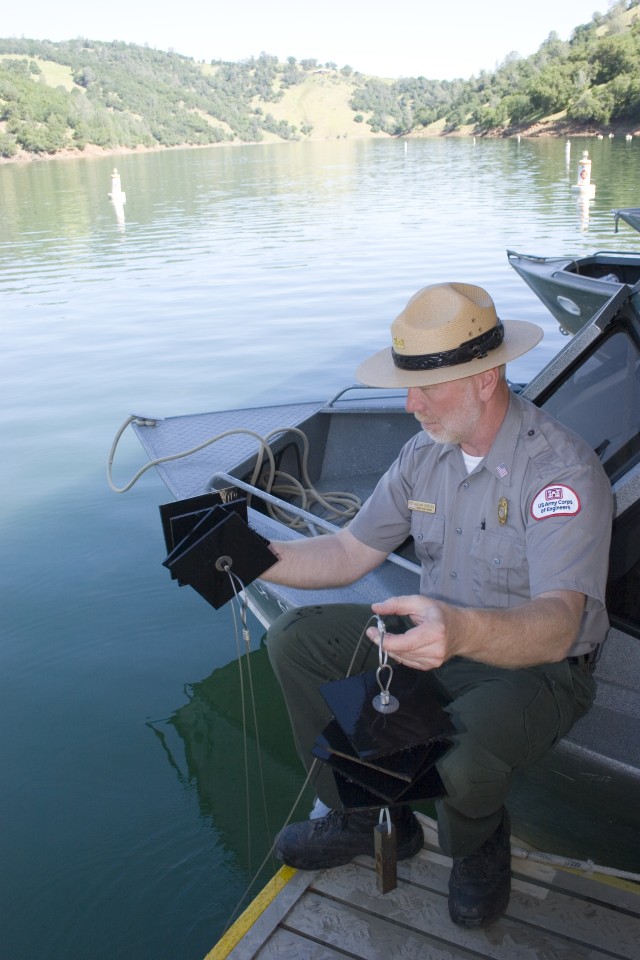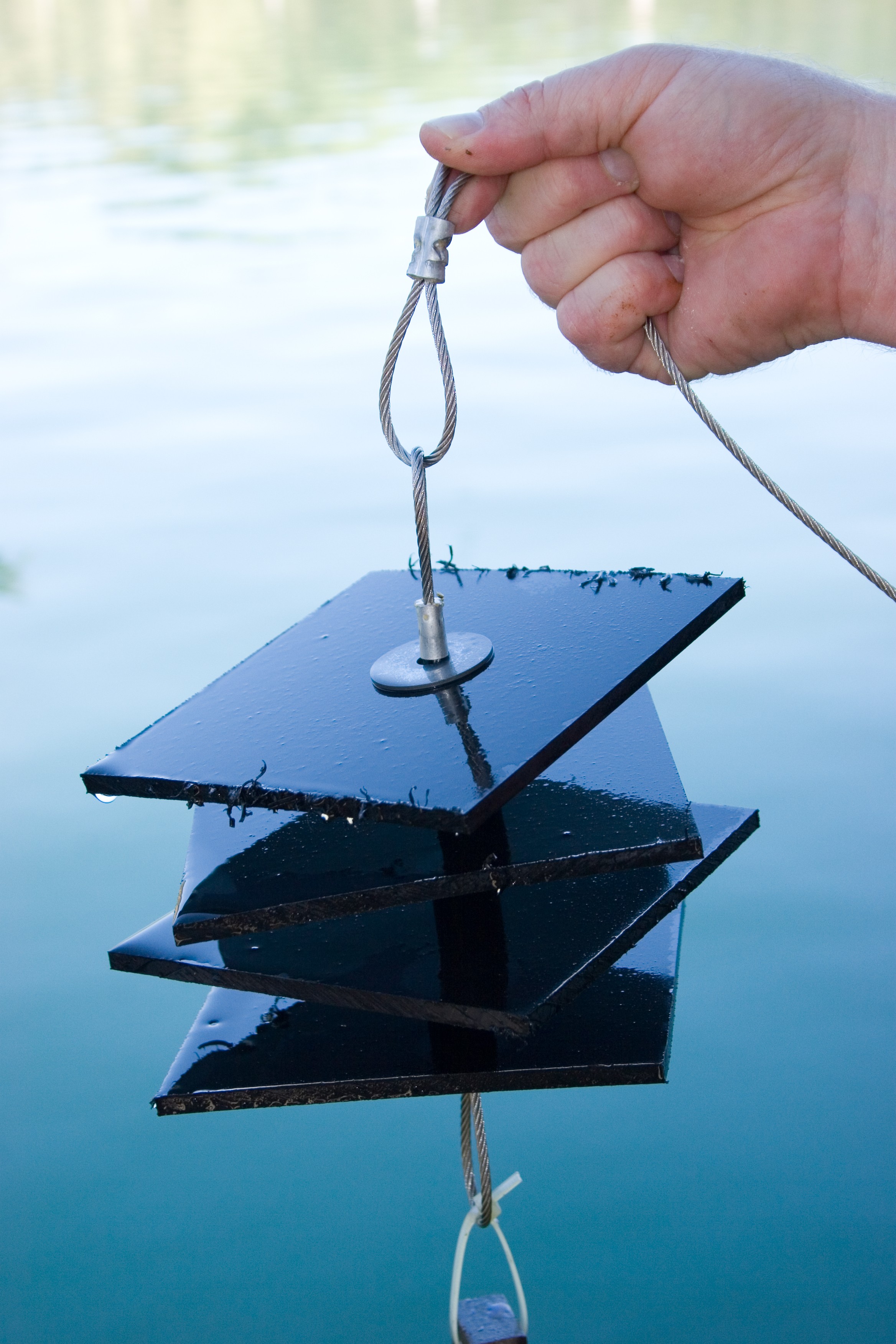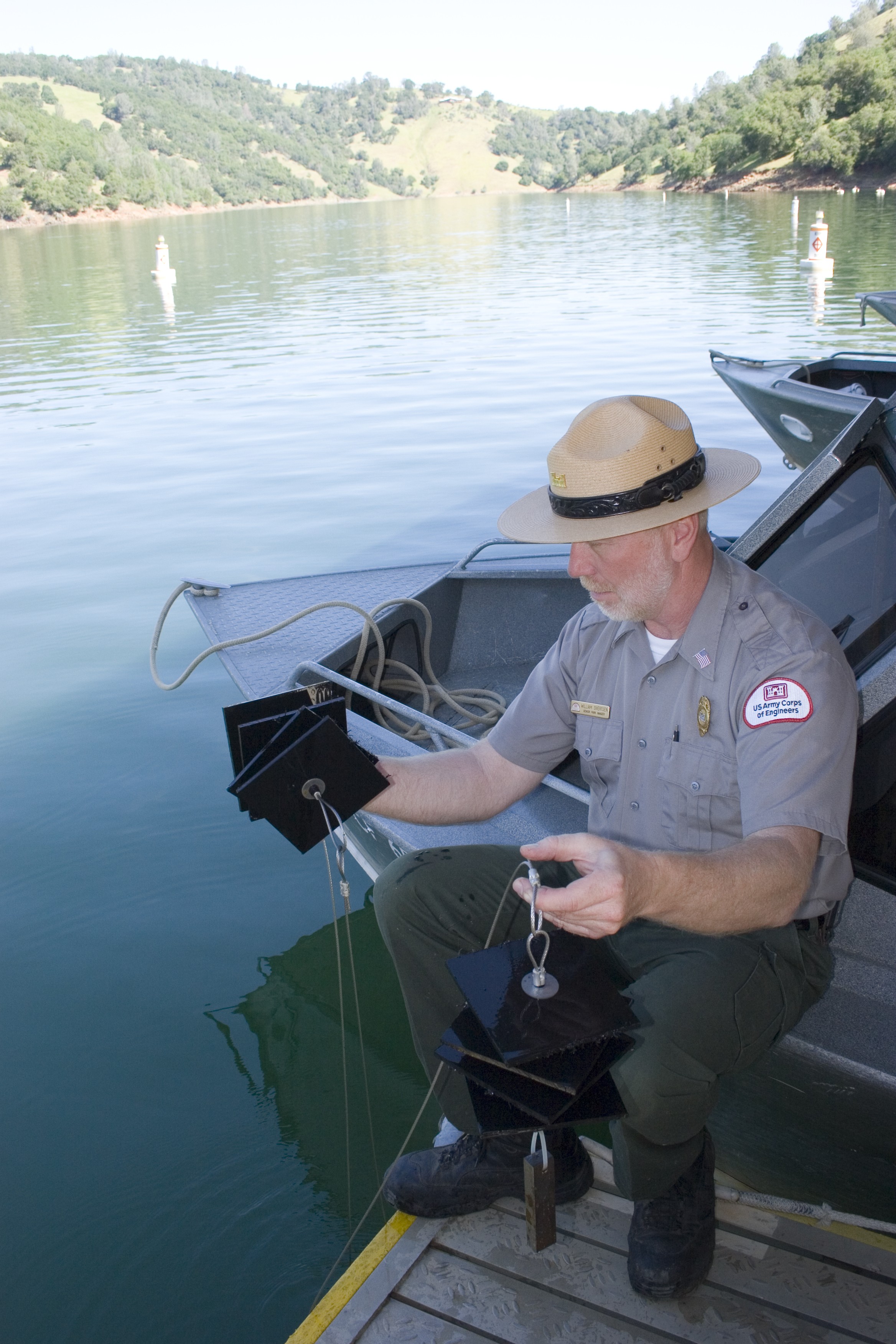ENGLEBRIGHT LAKE, Calif. (April 28, 2009) -- It's small - just a few sheets of plastic strung together - but it's playing a big part in preventing the spread of invasive zebra and quagga mussels into U.S. Army Corps of Engineers-managed lakes in California.
Corps of Engineers park rangers throughout the Sacramento District's 10 recreation parks are monitoring these simple mussel detection stations for any signs of an infestation, as part of the District's participation in the California Department of Fish and Game's Invasive Species Program.
The Sacramento District's Englebright Lake received its second mussel detection station April 16. Program managers there and at other Corps parks check them monthly and coordinate their findings with Fish and Game, the lead agency in California for fighting mussel infestation.
Both mussel species are believed to have been introduced into American waters by shipping traffic in the Great Lakes, according to the U.S. Geological Survey. They're most commonly spread when infested boats enter non-infested waters, or through waterways connected to infestation sites.
Zebra mussel infestation in the Great Lakes has caused billions of dollars in damage, both in direct clean-up costs and related economic losses. And while most infestations are in the eastern United States, quagga mussels have also overtaken the Colorado River in the West, USGS reports. Since 2007, 19 quagga populations have been found in California reservoirs, says Fish and Game public information officer Alexia Retallack.
"Prevention is key and the best option," Retallack says. "But early detection can greatly assist in stopping further spread, allowing water managers to move more quickly to reduce exposure risk."
That's where the mussel detection stations come in. Both species attach to whatever surfaces they can, so if there are mussels in the water, they'll turn up on the detection station. Regular monitoring of the stations by Corps of Engineers park rangers give officials the best chance for containing an infestation. But park rangers are also focusing on infestation prevention, by inspecting boats and educating visitors about the risks of mussel infestation and how they can help stop it.
"It's a serious threat," says Englebright's mussel detection program manager, Senior Ranger Skip Siversten. "And we're committed to working with our partners and the public to prevent it the best we can."
Such cooperation, Retallack says, is exactly what's needed to fight mussel infestation.
"The task of prevention, containment and control is far greater than any one agency could possibly handle," says Retallack. "By working together, federal, state, and local agencies throughout California can share information, maximize resources, and prevent the spread of the mussels."




Social Sharing